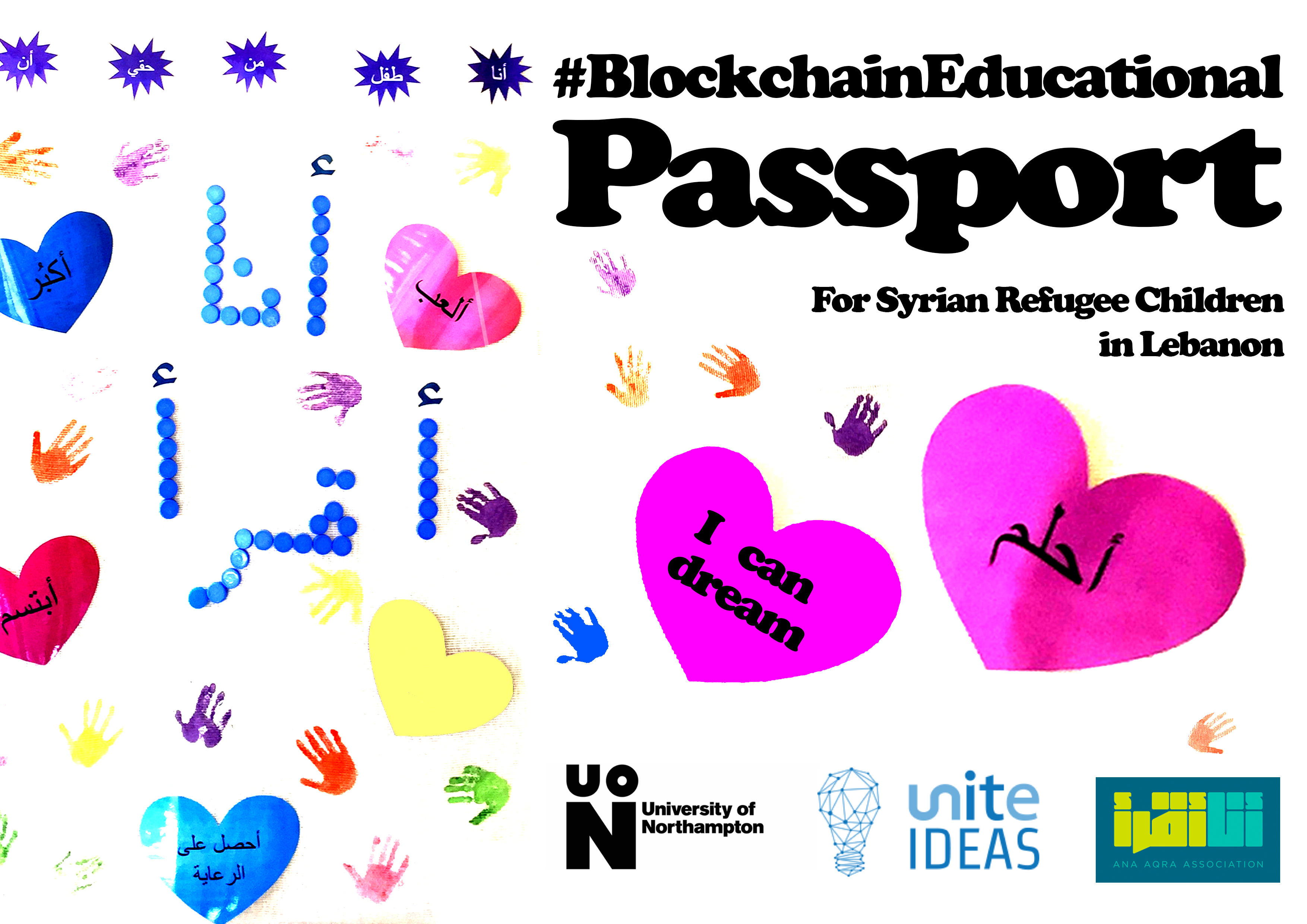UN picks up on UoN idea
Date 31.01.2018
31.01.2018
A University of Northampton proposal to help Syrian refugee children is being promoted by the United Nations as part of its latest set of global challenges.
#BlockchainEducationPassport is one of just eight crowdsourcing projects currently selected for the UN’s Unite Ideas platform.
Vice Chancellor, Professor Nick Petford, and ten other University staff, drawn from the Faculties of Education and Humanities; Arts, Science and Technology; and Business and Law, proposed the challenge, which is looking to design and build an ‘educational passport’ for refugees.
The Blockchain based technology will be used to record and keep proof of their educational credentials, including school certificates, official qualifications, and any informal experiences.
The proposal is now online and looking for ways of making this idea a reality – with an international panel of experts selecting the winners, and the best solutions put into action.
Associate Professor of Education, Dr Cristina Devecchi, who assembled the UoN team, said the tool will potentially be deployed in refugee camps and schools in Lebanon.
“Over one million people have moved from Syria into camps in Lebanon, leaving behind proof of their educational experiences. Roughly half of them are children, of which only a quarter of a million are currently in school.
“Whether in school or not, tracking their identity and learning credentials, and ensuring that their achievements are portable, remain key challenges.”
The proposal is looking to bring together a new open source software team with project management, Blockchain, user interface, and programming skills – along with psychologists, curriculum designers, legal experts, translators and communicators.
“This new tool should be designed to be applicable for refugees and other displaced people around the world who might have similar needs,” said Dr Devecchi.
The University developed the proposal in collaboration with a local NGO, the Ana-Aqra Association, that advances literacy and learning for underprivileged children in Lebanese public schools, on the suggestion of staff from the UN’s Office of Information and Communications Technology.
Unite Ideas aims to bring together the UN, academia, and the public to help achieve the Sustainable Development Goals – which all UN member states are working towards – through data-driven challenges.
The platform attracts data scientists, programmers, designers, students, and entrepreneurs worldwide – asking them to develop open source technology solutions to challenges posed by partners who are united in their goal to generate social good.
Dr Devecchi said the inputs and outputs of the project must be covered by recognized open source and creative commons licensing.
“By the end of this challenge, we expect to have identified one or more self-organized teams designing and building versions of this new platform using test data.
“Interested participants will be able to continue collaborating in an open source manner towards the full completion, testing and rollout of the new platform by the core team.”
Teams should be in place by the end of February, with solutions submitted by the May 6 deadline.
The winning projects will be announced in June at the UN’s headquarters in New York.
For more, go to ideas.unite.un.org/